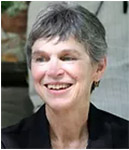Pocket Stories by Kathleen Coskran (Ethiopia)
Why write stories? A story is the most universal narrative, told by everybody around the world. We all lean forward when somebody says let me tell you about the time when, we wait for the and then, and we watch the story unfold in our mind’s eye. We see him crouched there, hear her voice, feel the stroke of the cat against our leg, hold our breath when the door creaks. Stories are words at their most powerful. Stories make us laugh, cry, sweat, hold our breath, fall in love, and remind us of the infinite ways we are human. Nobody is too young or too old for a story.
My stories are short—pocket stories—a title inspired by the Beatrice Schenk de Regniers poem “Keep a Poem in Your Pocket.” I write more stories than poems, but some of them are as short as poems so I post them on line (https://pocketstories-kcoskran.blogspot.com)because (paraphrasing de Regniers), if you keep a story in your pocket and a picture in your head, you’ll never feel lonely at night when you’re in bed.
Here is the first pocket story I wrote, not because it’s my favorite, but because it appeared first and reminded me of the magic of telling a story. Sometimes a story appears already formed, just waiting for me to add a detail or two, do a little jiggling, until it clicks into place. That’s what happened with “Snow Angels.” The others came in the same way–I wrote the first sentence, then just kept writing to see what would happen, and something always did.
I took a break from writing them a couple of years ago, but recently started again–as my morning meditation. The most challenging part has been figuring out the technology, how to make it easy for people to make a comment on the blog, and I just learned that you can subscribe so people can get a notification when there is a new one.
Here are some examples, beginning with the first one I wrote:
Snow Angels
 His boots squeaked as he strode across the yard towards the frozen lake. He paused at the snow angel, didn’t want to see it, but couldn’t look away. She’d made it a week earlier, in the morning, just before she drove into town, hit black ice, rolled the car and died. Instantly they said.
His boots squeaked as he strode across the yard towards the frozen lake. He paused at the snow angel, didn’t want to see it, but couldn’t look away. She’d made it a week earlier, in the morning, just before she drove into town, hit black ice, rolled the car and died. Instantly they said.
The angel was sunken, barely recognizable now. The hole in the wing where she put down her hand to push herself up was deep and jagged at the edges. She hated that hole. There has to be a way to make an angel and then float up with no evidence of the struggle, she’d said.
He remembered the light in her face when she said that, her delight in the transformation from snow angel to earth woman. She never sat, she moved, she laughed, she made snow angels because that’s what you do when it’s 20 below, and there’s fresh snow without a mark on it.
Don’t you want to make one?
He did not. The idea of falling straight back and dragging his arms and legs through icy snow had no appeal. And how would he get up? He didn’t do that sort of thing, never had, not at 8 or 18 and certainly not at 78.
He stepped around the week-old imprint, then turned back to look at the crusty angel one more time, the ragged old angel with a holey wing and concave skirt where she’d sat up to get her breath before putting her hand down the hole to stand.
If he fell down right beside it—beside her—his angel would be big, with great wide wings that grazed the tip of hers, that held her in place, that kept her safe and near.
He pulled his jacket around his neck, bent his knees, and let himself go.
 It was cool and soft. She’d told him the snow was a welcoming bed, but she never said what the sky was like when you lay in the snow on a clear, cold day. Another of her secrets: that ocean of blue through the white clouds, that clear shot into space, that vision of infinity, of up, up, up. The day was quiet, and there was no wind when his arms began to move up and down, and his legs made long, wide arcs across the snow, again and again, and when he was done, and it was time to get up, he just flew. Why hadn’t she told him that? Another of her secrets. That’s what happened.
It was cool and soft. She’d told him the snow was a welcoming bed, but she never said what the sky was like when you lay in the snow on a clear, cold day. Another of her secrets: that ocean of blue through the white clouds, that clear shot into space, that vision of infinity, of up, up, up. The day was quiet, and there was no wind when his arms began to move up and down, and his legs made long, wide arcs across the snow, again and again, and when he was done, and it was time to get up, he just flew. Why hadn’t she told him that? Another of her secrets. That’s what happened.
She flew.
Floyd
Floyd! Why did she name him Floyd? A name with too many consonants, no hint of assonance or history. Who ever heard of anybody named Floyd? Floyd, the Conquerer? Floyd, the Good? Professor Floyd? King Floyd? Floyd, sex symbol for the 21st century? A name to aspire to, that’s what she always said.
Maybe there was an ancient explorer…or plunderer–most explorers plundered–Viking Floyd? Floyd, the Fury? Floyd, the Terrible?
It was a name to be lived into, she said. Floyd the…. or Floyd who…..but too many “inappropriate” words began with F. He’d learned that lesson well before Junior High.
Not even a family name. No great uncle Floyd beaming at his namesake, not one of those grand old fashioned names spiraling up from the 19th century. She could have named him Henry or William, even Charles, names with truly great nicknames, Harry or Will or the always popular–and sweet–Charlie. Women loved men named Charlie. What do you shorten Floyd to? Don’t ask. He knew and none of it was good or strong or manly, certainly not sweet.
She never told him why and now she was gone, dead, cremated, dust to dust, ashes to a cardboard box of ashes, the one on his kitchen table with her last will and testament, to be buried at sea, it said, from a certain beach. A specific seashore. All paid for, she said. Somewhere on the Oregon coast–odd because they’d never been to Oregon. He accepted the mystery–it was so like her to be mysterious and so like him, the good son, to do as instructed.
So he was in Oregon now, slowing at the little motel perched–the only word to describe the ramshackle building under the sagging sign MOTEL–perched on a rock overlooking the Pacific. “Destination on your right,” Siri said. He pulled off the road, parked, stood and gazed at the waves crashing on the sand far below. There was a path down, but her note also said Ask permission. You can’t spread ashes just anywhere. Sign said OFFICE; he went in.
An old man stood behind the desk, an old man with a tangled rug of white hair, but no beard, clean shaven, eyes blue as the ocean. An old man with posture so notable that he heard his mother say shoulders back like the man you are.
He cradled the box of ashes in his left hand, put out his right, “Hello,” he said, “My name is Floyd and my mother….” What to say? He raised the box like an offering. She had scripted the journey, but not the arrival.
“I’m Floyd,” he said again.
“Me too,” the old man said. “The name is Floyd.”
Gull Man
The gull hovered overhead waiting while the man tore a crust off the bread and tossed it in the air. The bird swooped, caught it, dipped its wing in thanks or so the man supposed, and disappeared over the wall.
It came back as he knew it would, waiting just long enough for him to tear another chunk off and toss it up—the swoop—the catch—the dip—and then over the wall. His heart soared with the bird.
Every day the same thing until the slice of bread was gone. The bird knew when it was the last scrap and didn’t return until the next day. The others called him gull man, but he didn’t care, wondered if the other gulls called his bird, gull con.
The main flock of gulls hovered high over the yard. Only his came down for the bread—once it was cake—the warden’s birthday, or maybe it was Presidents’ Day, and they had cake for lunch. The man saved both the cake and the bread for the bird. Gave it the bread first, piece by piece, held up the cake to show there was more so the bird would come back—and it did—until the cake was a trail of crumbs. It fell apart across the yard and over the wall.
Gull man stood in the same spot at the same time every day, and the gull came.
He started including things from his cell—a torn scrap from a magazine, a snip from a t-shirt, pieces of himself to be flown over the wall. The bird took it all—the bread, the paper, the squares of cloth gull man tore until a whole shirt was gone, over the wall.
He emptied his cell, bit by bit, most of his clothes flown to the other side, the blank pages of a journal, the plastic tube of a pen, all of it somewhere on the other side.
The bird swooped closer, looked stronger, as the man added weight to the cargo—a dime wrapped in a square of paper—money for the outside.
The bird was there every afternoon, ready for the day’s load, not caring that the squares of bread were smaller and the bits of fabric larger, day after day, week after week, month after month.
Then the bird appeared at night, every night, in his dream, landing on his shoulder, curling its feet into his sweat shirt, plunging its beak into the ruff of cloth at his neck and lifting him up, up, up over the wall and away. Soon, he said, soon, that day was coming. When the cell was empty, he’d be next.
Story Time
“Tell me a story.”
“Oh. Okay. Well, once upon a time there was…
“No, now. Today.”
“Oh, okay. Early this morning an old lady with a crooked nose and one bent finger that….”
“NOW! Not this morning.”
“The old lady is in the room now, here with us, her bent finger in her pocket, concealed, hidden safe. She’s standing in the corner, not hiding really, but not ready to assert herself.”
“What’s ‘assert?’ Like dessert?” Laughter.
“No. Assert means to step forward and demand to be seen and heard.”
“And then dessert.” Much laughter.
“There is no dessert in this story, but we could put a desert in. Do you want that?”
Pause. Thinking about giving up dessert, then, “Okay, desert. Put in a desert.”
“So she has to leave the bedroom. There’s no desert here.”
Laughter. “Yes, but in a desert now.”
“It was hot in the desert and, of course, sand everywhere. When the wind came up, just a very small wind, but still a wind, she had to walk with her eyes closed, her bent finger hidden in her pocket, guided forward by her nose and especially her ears. She could hear the tiniest mouse sounds, the hidden whispers of the universe that most people miss.”
“What happened?”
“Well, what happened is she was walking in the desert, that’s what happened. There isn’t a crisis in every story.”
“No wolves or bears?”
“No, especially not in the desert. And this woman, this very old, bent, blind woman, smelled and heard all the tiny life, the microscopic life around her with every step. Her walk in the desert with ants and mites, flies and fleas, was more interesting to her than if she had encountered a lion.”
“No lions?”
“No lions. But wait. Stop. Look. Listen. Smell. There is something. She has slowed down now, only one step every minute, until after 10 minutes…
“And 10 steps!”
“Yes, after 10 steps, she bends her old knees, smiles at the creaking sound her knees make, bends her knees until she is kneeling in the sand. She takes her hands, even the one with the bent finger, out of her pocket and bends over so her hands are buried in the sand and her nose is almost touching….”
“Is she okay?”
“Yes. She is just where she wants to be. Her hands are deep in the sand, her nose is almost touching the sand, breathing the fresh, filtered air, and she rests. She rests. She even stretches out and lies on the sand, not too straight because she is old, and her body doesn’t straighten out the way yours does.”
“And she had to keep the bent finger in the sand.”
“Right.”
“I could lie flat in the sand.”
“Yes, you could. Straight as an arrow.”
Laughter.
“But there she lies in the warm, soft sand, as comfortable as a queen’s bed, as warm as a baby’s blanket, and as peaceful as sleep. But she doesn’t sleep.”
“What does she do?”
“Nothing. She is waiting.”
“For what?”
“For you to go to sleep so she can go to sleep. She is very tired.”
“We’re connected?”
“Of course you are. We are all connected. Especially you and the old woman; she’s in your story.”
“And I’m in her story?”
“Of course. She will go to sleep and dream of you and hope…hope….”
“That I dream of her!”
“Yes. How did you know?”
That was a long time ago, but he still thinks of his old woman who must be very very old, on the other side of the world, in a vast desert, a real desert or an imaginary one. It doesn’t matter because she is connected to him, and, really, connected to everything. Just as he is.


Kathleen, Thank you for these little nuggets of perfection. Jim w
Good stories Kathleen!
Such artistry! Loved these little nuggets of stories. Thanks for sharing.